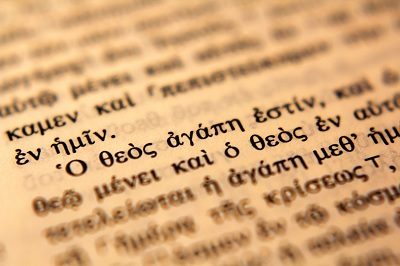CadyandZoe said:
We have the original manuscripts.
He can't explain honestly.
We do NOT have the original manuscripts. PERIOD !!!!!!!!!!!!!!!!!!!
We have original manuscripts. What we don't have are autographs.
I get it, you found out that some things you once believed are not actually true. But I suspect that those beliefs were religious believes and not rational beliefs. If deconstructing Christianity is beneficial at all, the process will result in the elimination of religious beliefs in favor of rational beliefs.
What you held were "religious" beliefs. What is a "religious belief"? A religious belief is nothing more but nothing less than a tenet held by those with membership in a particular religion. For one to maintain one's membership in a specific religion, one must affirm the particular set of tenets, which define the religion as a unique "belief system." Religious beliefs are taken "on faith" and are not subject to critical examination. One did not arrive at a religious belief through rational thought, so one will not abandon a religious belief in light of rational thought.
But sometimes religious beliefs don't work in the real world, which causes one to doubt whether the tenet is indeed true. Depending on the belief, this can lead to a crisis of faith. And if apostasy is the result, may it be a rejection of religion, not a rejection of Jesus Christ.
Rational beliefs, on the other hand, are verities that one affirms having examined all the available proofs and evidence. Rational beliefs are subject to critical examination, and those who hold rational beliefs are willing to reexamine a belief upon receipt of new proof and evidence. A Christian tenet obtained by reason and sound argument will stand.
Many of those who grow up in church adopt and hold religious beliefs. Children typically follow the religion of their parents. Nonetheless, according to the New Testament, God puts faith to the test, and in the process, some of our religious beliefs fall by the wayside. In contrast, others are affirmed, becoming rational beliefs.
I caution you against adopting the religious beliefs of the enemies of the gospel. Arguments against a sound Bible are subject to critical examination also. And I have critically examined these questions myself and I am confident that we have a reliable record of the apostles and prophets. That is, I am convinced in my own mind. I don't expect you to accept my word for it.
The closest thing we have to "original" manuscripts are the Alexandrian texts.
Reason being, that Egypt is such a dry climate that the "copies" (of copies of copies...)
survived best due to the climate conditions.
This isn't true. The dryness of the climate accounts for the number of extant manuscripts discovered by Biblical archeologists. It means nothing with regard to authenticity.
Coherence of thought is a better "ruler" with regard to authenticity.
www.christianityboard.com


